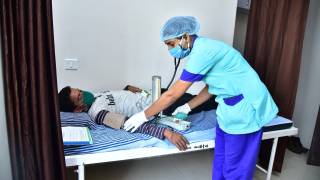People Recovered from COVID-19 May Require Just One mRNA Vaccination

Researchers from NYU Grossman School of Medicine found people previously infected with the SARS-CoV-2 coronavirus may produce enough antibodies against COVID-19 after one dose of the Pfizer–BioNTech COVID-19 vaccine that is equal to or higher than people not previously infected have after two vaccinations.
Presented virtually March 9, 2021, at the Conference for Retroviruses and Opportunistic Infections, this limited study found people who previously had a COVID-19 infection and who received a single dose of Pfizer-BioNTech mRNA vaccine, produced high levels of “neutralizing” antibodies capable of defending cells from the coronavirus and of blocking its biological effects at 6 to 14 days after vaccination.
This experimental mRNA vaccine received an Emergency Use Authorization from the U.S. Food and Drug Administration on December 11, 2020, based on a clinical trial in which two doses of the vaccine were safe and highly effective with 43,252 participants.
Patients known to be previously infected were excluded from the original trial, as their immune response to the actual infection would have confused the measurement of their response to the vaccine, researchers reported.
“Our findings support a hypothesis that SARS-CoV-2–experienced people may require only a single dose of mRNA vaccine,” commented Mark J. Mulligan, MD, director of the Division of Infectious Diseases and Immunology and director of the Vaccine Center, in a press release.
“That said, our results would need to be borne out by larger studies before they influenced current policy, which is that patients receive the evidence-based, two-shot regimen."
Specifically, specimens were collected from 33 participants before and 6 to 14 days after doses 1 and 2. Thirty-two adults received the Pfizer vaccine and one the Moderna mRNA vaccine. Fourteen of 33 had a history of COVID-19 (median age 41, 71 percent female), while 19 had not been exposed to SARS-CoV-2.
To compare immune responses after one and two doses of vaccine, the research team used a well-known technology, enzyme-linked immunosorbent assay, which had been tailored in recent months to find the number of functional antibodies in a person’s blood by presenting to it a sample of the spike protein from the COVID-19 virus.
Those antibodies that can attach to the spike do so, while those that cannot are washed away.
Researchers say vaccines safely mimic actual infections, which teaches the immune system to be ready for a future encounter.
The Pfizer vaccine is based on RNA, or ribonucleic acid, which serves as the primary genetic material instead of DNA for the pandemic coronavirus. The vaccine contains viral mRNA encoding the “spike proteins” used by SARS-CoV-2 to attach to proteins on human cell surfaces, which invade the cells in which it multiplies.
Including the spikes in vaccines has made proteins required for viral ability to infect visible to the human immune system, say the study authors.
Once injected into the arm muscle, the spike protein is made. It triggers the production of antibodies, immune proteins that specifically glom onto this viral target protein, disabling it and tagging it for removal from the body.
Along with Dr. Mulligan, authors of the study from NYU Grossman School of Medicine were Marie Samanovic, Amber Cornelius, Trishala Karmacharya, Jimmy Wilson, Sophie Gray-Gaillard, Joseph Allen, Sara Hyman, and Ramin Herati, of the NYU Infectious Diseases with Public Health Importance Study Team. The study was funded in part by the National Institutes of Health. No researcher conflicts on interest were disclosed.
NYU Grossman School of Medicine is ranked among the top 5 in the nation for research on the 2021 U.S. News & World Report “Best Graduate Schools” rankings.
PrecisionVaccinations publishes research-based vaccine news.
Note: This article was expanded for clinical relevancy.
Our Trust Standards: Medical Advisory Committee
- Patients Recovered from COVID-19 May Require Just One Dose of mRNA Vaccine
- Robust Spike Antibody Responses and Increased Reactogenicity in Seropositive Individuals after a single dose of SARS-CoV-2 mRNA
- Covid-19: People who have had infection might only need one dose of mRNA vaccine
- PFIZER AND BIONTECH CELEBRATE HISTORIC FIRST AUTHORIZATION IN THE U.S. OF VACCINE TO PREVENT COVID-19
- Pfizer-BioNTech COVID-19 Vaccine

























